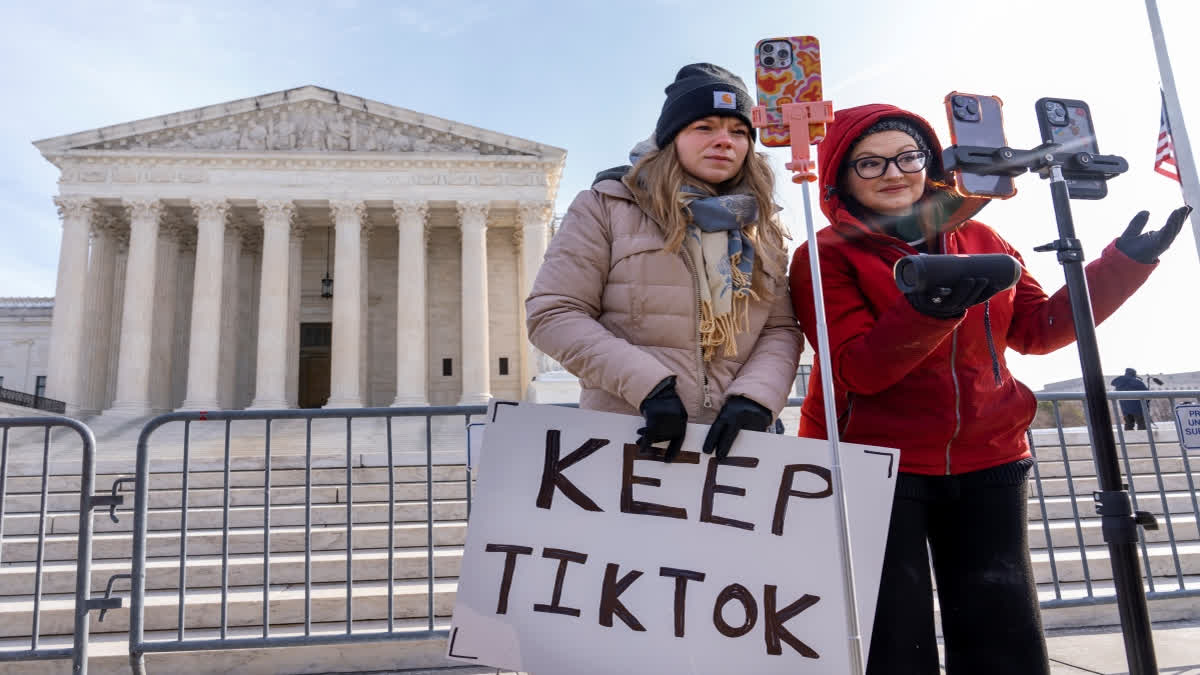Washington: The Supreme Court on Friday unanimously upheld the federal law banning TikTok beginning Sunday unless it's sold by its China-based parent company, holding that the risk to national security posed by its ties to China overcomes concerns about limiting speech by the app or its 170 million users in the United States.
A sale does not appear imminent and, although experts have said the app will not disappear from existing users' phones once the law takes effect on Jan. 19, new users won't be able to download it and updates won't be available. That will eventually render the app unworkable, the Justice Department has said in court filings.
The decision came against the backdrop of unusual political agitation by President-elect Donald Trump, who vowed that he could negotiate a solution and the administration of President Joe Biden, which has signalled it won't enforce the law beginning Sunday, his final full day in office.
Trump, mindful of TikTok's popularity, and his own 14.7 million followers on the app, finds himself on the opposite side of the argument from prominent Senate Republicans who fault TikTok's Chinese owner for not finding a buyer before now.
It's unclear what options are open to Trump once he is sworn in as president on Monday. The law allowed for a 90-day pause in the restrictions on the app if there had been progress toward a sale before it took effect. Solicitor General Elizabeth Prelogar, who defended the law at the Supreme Court for the Democratic Biden administration, told the justices last week that it's uncertain whether the prospect of a sale once the law is in effect could trigger a 90-day respite for TikTok.
At arguments, the justices were told by a lawyer for TikTok and ByteDance Ltd., the Chinese technology company that is its parent, how difficult it would be to consummate a deal, especially since Chinese law restricts the sale of the proprietary algorithm that has made the social media platform wildly successful.
The app allows users to watch hundreds of videos in about half an hour because some are only a few seconds long, according to a lawsuit filed last year by Kentucky complaining that TikTok is designed to be addictive and harms kids' mental health. Similar suits were filed by more than a dozen states. TikTok has called the claims inaccurate.
